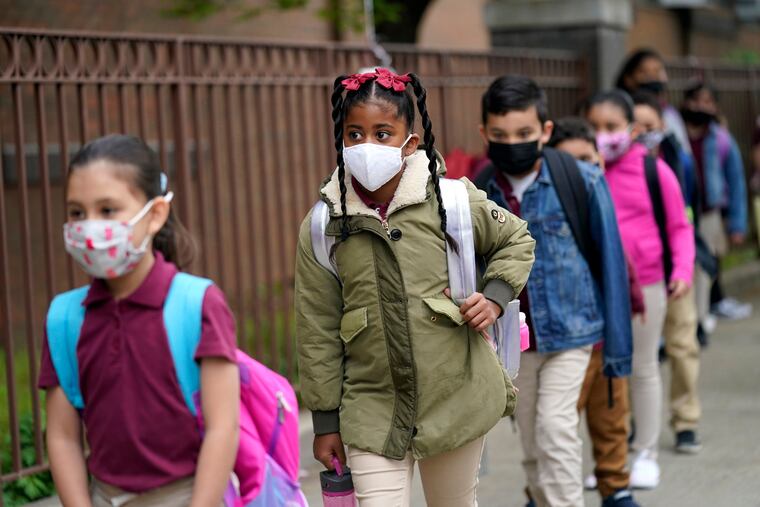New Jersey schools are racially segregated. A judge can change that. | Opinion
As the court considers the facts and the law, it should also consider students.

I grew up in Little Rock, Ark., in the 1990s, the place where nine Black students integrated Central High School in 1957. That integration was only made possible when President Dwight D. Eisenhower sent federal troops to Little Rock to protect those nine Black students.
But school segregation is not a Southern problem, nor is it confined to the past. The issue is widespread and can exist most severely in Northern states.
Consider New Jersey. The state maintains a sprawling public education system with 674 school districts, 2,514 public schools, and nearly 1.4 million public school students. A majority of Black and Latino students attend schools that are predominantly nonwhite. Students, teachers, parents, and concerned members of the community are hopeful that a pending court case will correct this injustice.
After years of delay caused by procedural tactics and the pandemic, on Thursday, a New Jersey Superior Court judge will hear oral arguments in Latino Action Network v. New Jersey and determine whether laws, policies, and practices that racially segregate our public schools should end.
In deciding the case, the judge has an opportunity to do what the state’s legislature and chief executive have refused to do for years: declare that New Jersey schools are illegally racially and economically segregated, and require the state to begin the process of remediating this decades-long problem. In this case, New Jersey has the opportunity to end school segregation and ensure that all its students have access to quality public education.
To be clear, school segregation is not isolated to New Jersey. There are nearly 50 million public school students in the United States. Nearly half of those students are white (46%) and the other half are Black and Latino (43%). A finding by the judge in this case that New Jersey’s segregated schools violate the Constitution would provide persuasive authority for advocates across the country seeking to end school segregation.
The New Jersey lawsuit was filed in 2018 by several civil rights organizations and students on the 64th anniversary of the Supreme Court’s decision in Brown v. Board of Education. The suit argues that New Jersey schools, among the most segregated in the nation, harm all students “by creating homogeneous learning and social environments.”
“In this case, New Jersey has the opportunity to end school segregation and ensure that all its students have access to quality public education.”
In response, the state, while admitting that segregation exists, seeks to evade legal liability by arguing that it is not responsible for the segregation or for remedying this problem.
The state’s defense is unpersuasive. This case is ripe for adjudication in favor of the plaintiffs because there is widespread, harmful segregation in New Jersey schools, and the state has a responsibility to fix it. The roughly 1.4 million New Jersey public school students deserve a quality public education regardless of their race, hometown, or socioeconomic status.
There is no question that New Jersey’s school segregation is a product of the state assigning students to public schools based on their zip code, and a school funding formula that was recently described as “outdated” and “in need of recalibration” by the New Jersey Policy Perspective.
This case has drawn attention to the need for legislative reforms to integrate New Jersey’s schools. The legislature is currently considering a bill that would create a Division of Segregation within the Department of Education to study segregation.
Regrettably, the bill fails to appropriate funds for the division’s work and does not require any public accountability in the form of public hearings or public reporting. It also fails to center the experiences of students, teachers, and communities.
The bill should be amended to incorporate these things. Failure to do so demonstrates that the legislature does not take seriously the challenges that students — especially Black and Latino students — face in New Jersey’s public schools.
» READ MORE: Philadelphia schools still segregated as suburban districts integrate, analysis finds
As a former middle school teacher, I am aware of the impact that segregated schools can have on students. As a lawyer and student of history, I am also aware that progress in the struggle for civil and human rights is most often left to the courts.
I am hopeful that as the New Jersey court considers the facts and the law, it also considers students.
Derick D. Dailey is a lawyer and senior legal fellow at Salvation and Social Justice, a New Jersey-based Black faith-rooted public policy organization. @dddailey